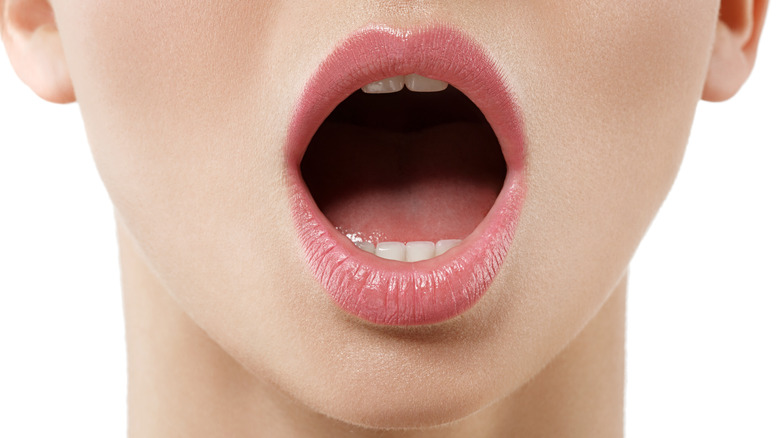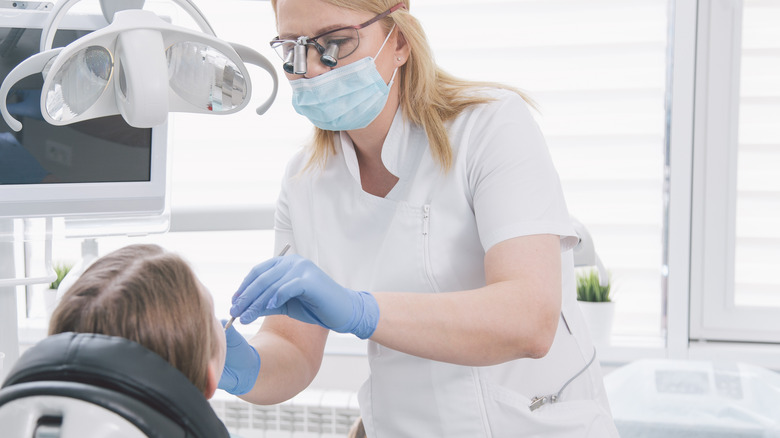The Real Reason You Have Bad Breath
Few things make us as paranoid as the thought that our breath could be in some way offending (or even turning the stomach) of the person we're speaking to. This is why the oral hygiene market is loaded with breath fresheners that come in just about every form imaginable, including gum, candy, minty toothpaste, and mouthwashes.
"Bad breath, also known as halitosis, is a common complaint in one-third of the population," periodontist Wayne Aldredge says (via Johnson & Johnson). Bad breath is caused by bacteria that have taken residence in various areas inside your mouth, and which breaks down everything from food to skin cells. That action releases sulfur compounds (yes, into your mouth) which just plain stink.
Gum diseases can cause bad breath
Bad breath is usually linked to poor oral hygiene, and while we normally blame foods like onions, garlic, coffee, and alcohol for temporary halitosis, there are other health problems for which bad breath is merely a symptom, particularly when the problem is chronic. Harvard lists gingivitis and its more serious form, periodontitis, both of which are inflammations of the gum and teeth area, as potential reasons for bad breath.
Gingivitis happens when teeth are not cared for properly and bacteria flourishes as a result. If left untreated, gingivitis and periodontitis can destroy the teeth's supporting structures (namely, the gums and the other tissues that surround the teeth), which can lead to problems including tooth loss (via European Federation of Periodontology).
Having a dry mouth can lead to bad breath
Because saliva keeps your mouth in a natural rinse cycle by cleaning out bits that could cause bad breath, having a dry mouth is yet another potential cause of bad breath. Dry mouth usually happens when you are sleeping — and it worsens if you sleep with your mouth open (via Mayo Clinic). Dry mouth can also be triggered by tonsillitis or respiratory problems such as a cold, sinusitis or bronchitis — which could also explain why some of us might feel like our breath quality is compromised when our throats hurt or our noses are stuffed.
If you feel dry mouth may be a problem and you don't have a cold, it may be best to see a doctor to make sure your salivary glands are not compromised, or to rule out any gastrointestinal diseases. Because it is often a symptom of an underlying illness, it is best not to ignore halitosis, or mask it with mouthwashes and mints, because it won't go away if the illness is not dealt with, so schedule an appointment with your dentist or doctor to get to the root of the problem.


